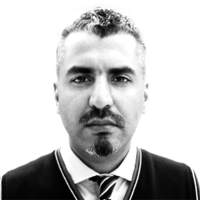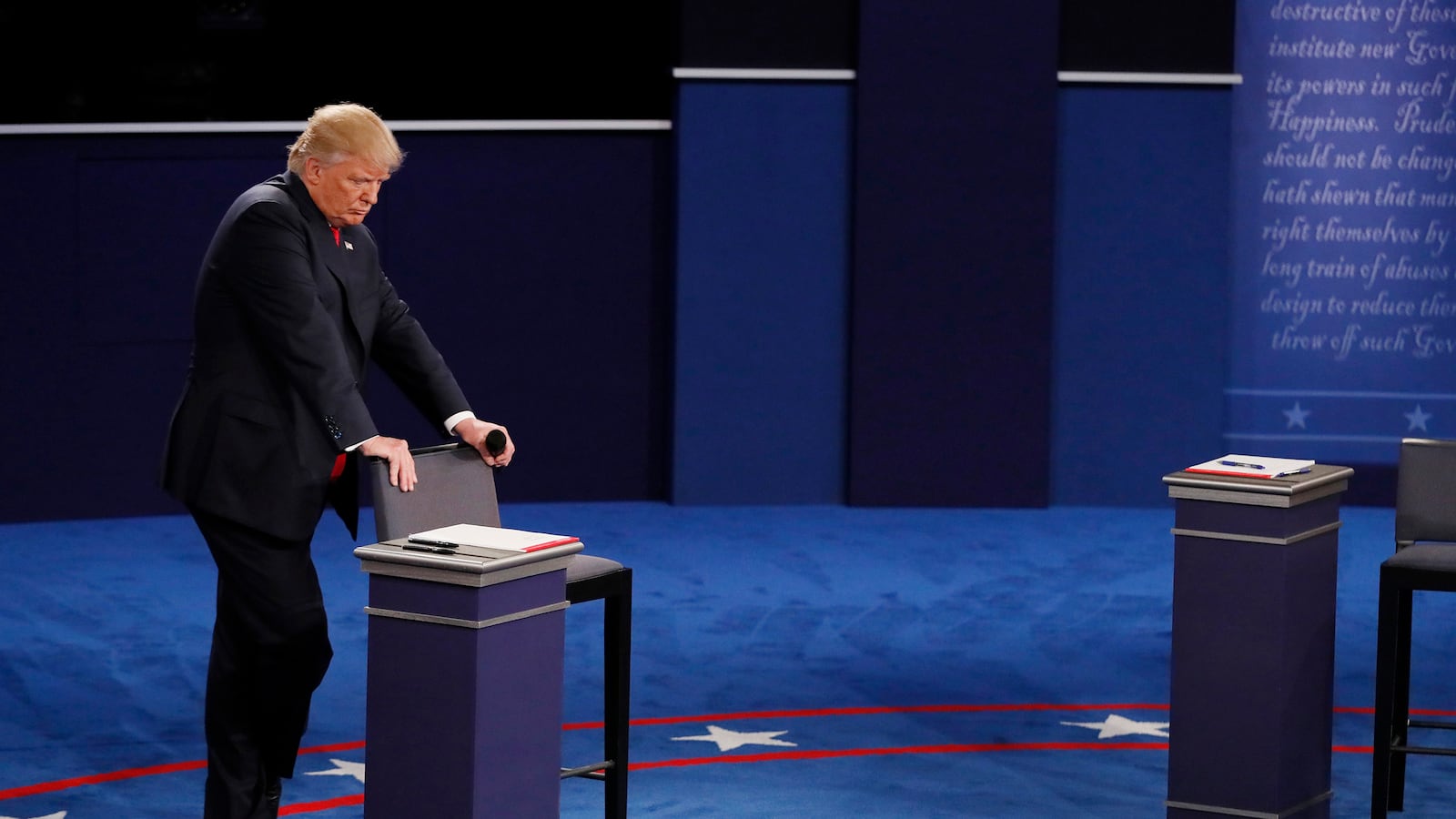LONDON — During the second presidential debate, Donald Trump once again complained that he was a victim. At one point he even moaned that it was three against one, implying that the two moderators and Hillary Clinton had ganged up on him and weren’t letting him speak.
In reality, at 40:10 against 39:05, Trump spoke for a minute longer than Clinton overall. But that is unlikely to satisfy his complaint, nor change the perception among his supporters that he is the “underdog,” while Clinton and her campaign team are the “bullies.”
And despite being among the richest men in America, born to wealth in the most powerful country in the world, Trump’s message of victimhood is resonating.
You may be forgiven for pondering aloud here… WTF? And… does he believe this stuff himself?
I think he does.
Power is one of life’s most addictive drugs, and we need to consider the withdrawal symptoms of this intoxicant among Trump supporters.
When the powerful are being leveled, they become scared. Petrified of losing the deference they believe they are entitled to, they cast themselves anew as the oppressed. Used to receiving preferential treatment, they suddenly feel discriminated against.
And so it has come to pass that every time a powerful group is equalized during times of great social upheaval, they cast themselves as victims.
They feel threatened, then discriminated against, and they may grow dangerous. The years after the Great War witnessed Germans and Italians bemoaning their loss of status, which led to World War II. Many in the American South felt victimized and probably scared, when Lincoln ended slavery. Some responded with the Ku Klux Klan, then Jim Crow.
Misogynist men felt threatened and vulnerable when women demanded universal suffrage. And Islamism emerged after the collapse of the Ottoman Empire, as Arabs and Muslims were hit by a post-colonial identity crisis, no longer being able to chart the course of the world as they knew it.
How is it that Trump, one of the most powerful men in America, can see himself as the victim? Easily. Here is a man so used to acting with impunity that even after the Central Park Five were proven to be innocent he wrote a column attacking them, and refused to apologize for calling for their death.
Here is somebody so used to not being held to account that he felt free to boast about sexual assaults with people he had just met.
Here is a relic of power so accustomed to getting what he wants that he doesn’t even let facts stand in his way (Note: Facts are only for Mexicans). And therefore, when he’s finally expected to account for his actions, to justify his assertions and defend his positions, he complains about being victimized.
Trump is the archetypal cry-bully, so adjusted to everything revolving around him that only he can be the victim. Nobody else’s pain matters, unless of course it can be used to teach them how much he has been suffering, too.
Originating in the 16th century, the word “bully” was a term of endearment meaning lover, or boel in Dutch, and brother, or broeder. Bully then evolved into a greeting for a jolly male friend. By the mid-17th century, an alternative meaning, “harasser of the weak,” had started to emerge. The connection between the positive origins of “bully” and its now almost universal negative implication of “preying on the weak” is not hard to see. That boisterous “male friend” probably just engaged in, well, too much “jolly” locker-room talk.
Like the etymology of this word, bullies have gone full circle from being the strong picking on the weak to becoming the strong complaining about being bullied; in other words, held to account.
An understandable desire to ditch our overbearing culture of political correctness is no excuse. As The Donald demonstrates all too often, it is possible to be politically incorrect but still have your facts completely wrong.






